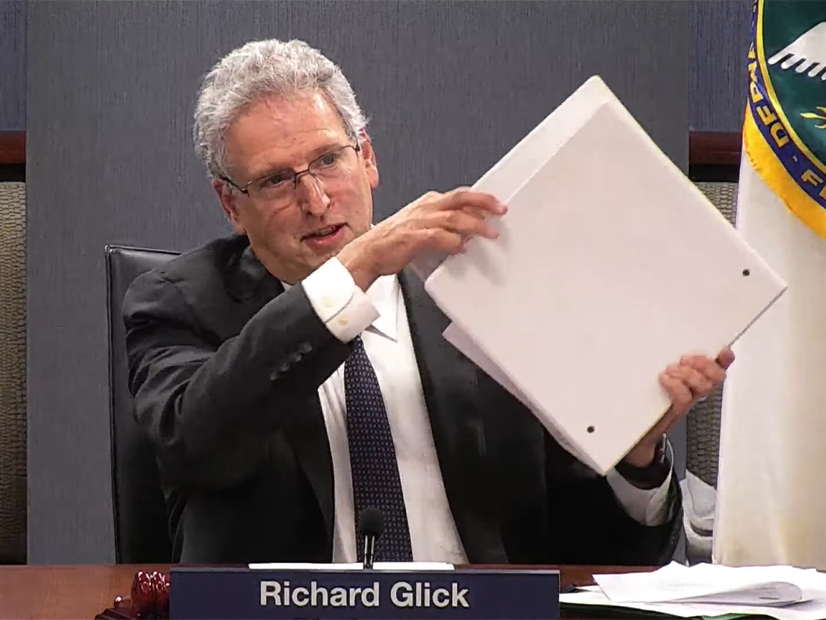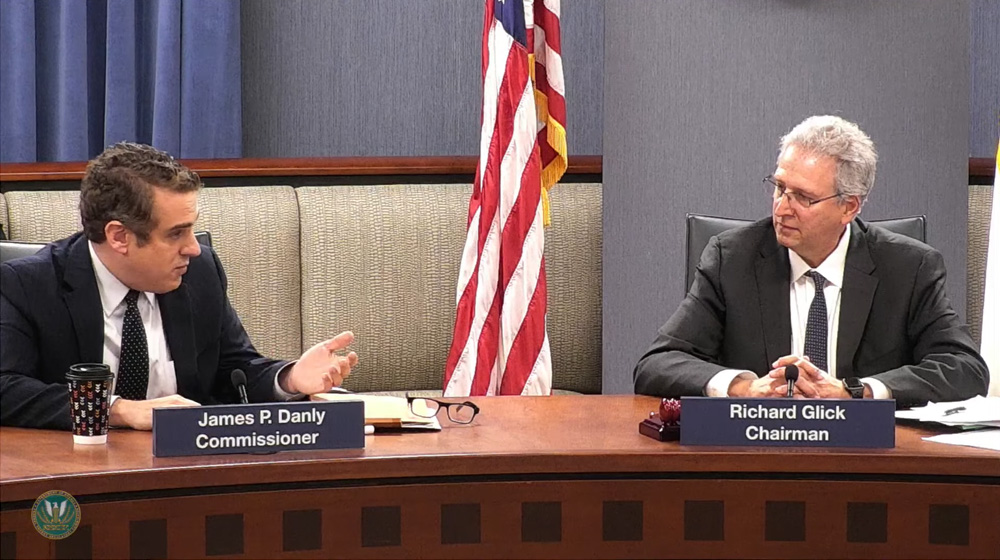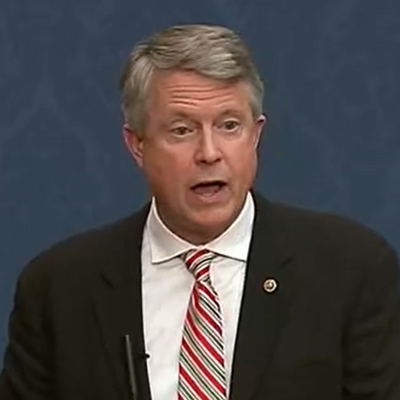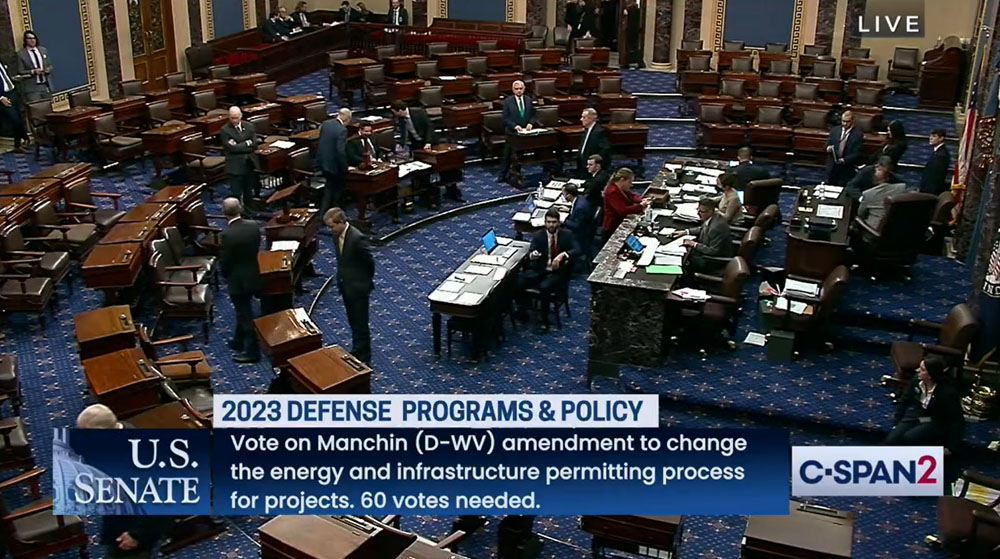The California Energy Commission on Wednesday approved a broad investment plan for $2.9 billion in state clean-transportation funding through 2026, with most of the money allocated to charging infrastructure for light-, medium- and heavy-duty electric vehicles.
“I just want to acknowledge how transformational this plan is,” said Commissioner Patty Monahan, who led the effort. “In terms of the level of investment, it’s 30 times what our [Clean Transportation Program] budget was in 2019, so that’s just an eye-popping number, but I would say that it is commensurate with the level of ambition in the state.
“We are seeking to zero-out emissions from all sources of transportation in the next 15 to 25 years,” she continued. “Historically, I would say lack of investment by the auto and vehicle industry largely was the biggest obstacle to zeroing out emissions from transportation. Now I wouldn’t say that. Now it’s infrastructure, and we need to build out infrastructure in a way that’s really attentive to the needs of communities and ensures that people are not left behind.”
The Energy Commission’s funding plan mainly adheres to requirements imposed by the State Legislature in the two most recent state budget cycles, which dedicated a total of $10 billion to accelerate the state’s transition to zero-emission vehicles.
The plan includes $1.7 billion for medium- and heavy-duty ZEV infrastructure and $900 million for light-duty EV charging infrastructure.
The remaining $300 million will go to promote in-state ZEV manufacturing, hydrogen fueling stations, low- and zero-carbon fuels, workforce development, vehicle-to-grid integration, and emerging technologies in zero-emission planes, trains and ships.
Funding for the current fiscal year of more than $1 billion is guaranteed, but future years will require legislative appropriations. The CEC intends to distribute the funds through competitive grant solicitations and direct-funding agreements.
“CEC staff estimates the plan will result in 90,000 new EV chargers across the state, more than double the 80,000 chargers installed today,” the commission said in a news release. “Combined with funding from utilities and other programs, these investments are expected to ensure the state achieves its goal to deploy 250,000 chargers by 2025.”
CARB Funding
The commission’s charging infrastructure investment plan complements $2.6 billion in incentives for clean cars and trucks that the California Air Resources Board approved Nov. 17.
CARB’s funding included $2.2 billion in incentives for clean trucks, buses and offroad equipment; $326 million for the purchase of zero-emission light-duty vehicles; and $55 million for clean mobility projects, such as community shuttles and bike-share programs. (See CARB Approves $2.6B in Clean Vehicle Incentives.)
Together, the $5.5 billion in ZEV funding is intended to help the state reach its decarbonization targets: All new passenger cars sold in-state must be emissions-free by 2035; all new medium- and heavy-duty vehicles sold must be ZEVs by 2045; and greenhouse gas emissions must be 40% below 1990 levels by 2030.
A series of bills, regulations and executive orders established the mandates, mostly in the past five years.
The CEC estimates the state will need to install 1.2 million light-duty EV chargers and 157,000 medium- and heavy-duty EV chargers over the next decade if it hopes to achieve its goals.
CPUC Actions
In support of EV charging needs, the California Public Utilities Commission has authorized the state’s three large investor-owned utilities to install thousands of EV chargers in recent years. In August 2020, for example, the CPUC approved Southern California Edison’s plan to install 38,000 charging ports at a cost of $437 million.
Last month it approved a $1 billion, five-year effort to provide charging infrastructure for EVs. Approximately 70% of the funds will be dedicated to charging medium- and heavy-duty vehicles; the rest will be for light-duty EV charging at or near multifamily housing complexes, with priority given to investments in low-income, underserved and tribal communities.
On Thursday, the CPUC authorized Pacific Gas and Electric to install 2,822 light-duty Level 2 chargers and direct-current fast chargers at multifamily housing complexes, workplaces and public-destination sites, “which typically face the biggest barriers to EV charging and transportation electrification,” the commission said in a news release.
The first phase of the program will run from 2023 to 2025 with $52 million in funding. PG&E must spend at least 65% of the funds in underserved communities, the CPUC said.
In a separate move Thursday meant to accelerate charger installations, the CPUC established a 125-day timeline for utilities to connect customers with EV infrastructure to the grid, “referred to as energizing new EV electric load,” the news release said. The timeline includes 25 days to obtain local permits.
The CPUC also required the utilities to make the energization process clearer to customers.
“Today’s energization decision takes big steps to speed up the process of connecting new EV chargers to the electric grid and to make sure utilities provide customers information about how that process works,” Commissioner Clifford Rechtschaffen said in a statement following the vote.



